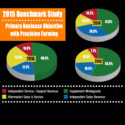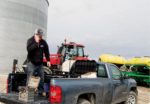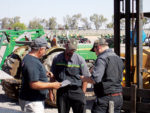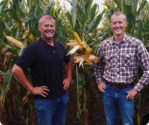Advertise Follow Us
Precision Farming Dealer

View Archived Issues
Summer 2015
Volume: 3
Edition: 2
Best practices for selling, servicing and supporting precision farming
-
Table of Contents
Table of Contents
2015 Benchmark Study: Product & Service Diversity Define Business Objectives
As core hardware sales slow, dealers shift priorities to aftermarket products and opportunities for recurring revenue.Read MoreDay in the CabBuilding Customer Confidence with Timely Support Amid Spring Chaos
Relating to customers and adapting to their precision needs keeps P&C Ag Solutions president Mike Houghtaling energized during planting season.Read MoreImplementing Precision Data Privacy, Security and Ownership Policies
With precision farming equipment capturing more data than ever, dealers are faced with the need to build a comprehensive strategy to keep that information safe and private.Read MoreYour Customer UpdateApplying Farm Data to Improve Decision Making
Turning raw precision numbers into actionable information helps Illinois strip-tillers Dan and Trent Sanderson save money on inputs and increase efficiency.Read More10 Strategies for Making Money on Used Precision Equipment
Stocking lean and efficiently managing inventory are protections against precision ag obsolescence amid changing technology.Read More -
Featured Articles
Featured Articles
2015 Benchmark Study: Product & Service Diversity Define Business Objectives
As core hardware sales slow, dealers shift priorities to aftermarket products and opportunities for recurring revenue.Read MoreImplementing Precision Data Privacy, Security and Ownership Policies
With precision farming equipment capturing more data than ever, dealers are faced with the need to build a comprehensive strategy to keep that information safe and private.Read MoreDay in the CabBuilding Customer Confidence with Timely Support Amid Spring Chaos
Relating to customers and adapting to their precision needs keeps P&C Ag Solutions president Mike Houghtaling energized during planting season.Read More -
Digital Edition
Digital Edition
- Online Extras










![[Technology Corner] Verdant Robotics Sharpshooter Delivers ROI Within 1 Year](https://www.precisionfarmingdealer.com/ext/resources/2024/11/22/Verdant-Robotics-Sharpshooter-Delivers-ROI-Within-1-Year.png?height=290&t=1732293564&width=400)


